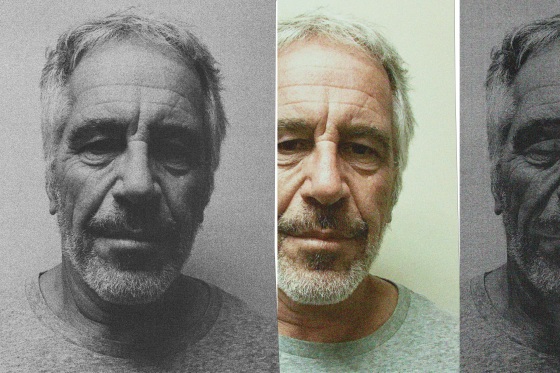Trump was known to have been friendly with Epstein, telling New York magazine in 2002: “I’ve known Jeff for 15 years. Terrific guy.”
The statements came before there were any public allegations of wrongdoing against the multimillionaire money manager. “He’s a lot of fun to be with,” Trump said then. “It is even said that he likes beautiful women as much as I do, and many of them are on the younger side.”
In 2019, after Epstein’s arrest, Trump said he had a falling out with Epstein “a long time ago.”
Epstein died in jail in 2019 while awaiting trial on federal sex trafficking charges. The New York City medical examiner ruled his death a suicide, but conspiracy theories claiming that “Epstein didn’t kill himself” began to spread almost immediately in the aftermath.
Trump has used conspiracy theories for political gain since before he ran for president, when he stoked false claims that Barack Obama’s birth certificate was fake. Since then, he and his supporters have embraced or at least entertained a wide variety of outlandish claims, with many centering on child abuse. During his most recent presidential campaign, Trump said he would have “no problem” looking into an Epstein client list — a list that some people believe exists and that contains the names of powerful clients of Epstein’s.
Trump further leaned into the conspiracy mindset, appointing to senior positions people who have similarly used conspiracy theories to make broad accusations of corruption and abuse, most notably FBI Director Kash Patel and FBI Deputy Director Dan Bongino.
“Nobody exploited those questions more than Donald Trump,” said Russell Muirhead, a professor at Dartmouth College who has written on the online intersection of conspiracy theories and politics. “And he did that because, as always, he wanted to paint government officials as liars, as self-serving, as liberal ideologues, as people who just deserve to be fired. Well, now government officials are people he appointed, and now he’s saying, ‘Hey, there’s nothing to see here.’”
Suspicions about the treatment of the Epstein case and his death have festered online across the political spectrum for years. The phrase “Epstein didn’t kill himself,” a rebuttal to the official explanation of Epstein’s death, has taken on a cultural meaning beyond the facts of the case, popping up in recent years everywhere from holiday decorations and stickers to internet memes.
Joseph Uscinski, a political science professor at the University of Miami who has written extensively on conspiracy theories, stressed that claims of shadowy groups of elites abusing children have been around for millennia, with the Epstein theories only a more recent and high-profile example.
“These ideas have been there,” he said. “We just weren’t paying attention.”
Public interest in all things Epstein has remained high since last week, when Axios first reported that a two-page memo from the Justice Department featured a conclusion that an “exhaustive review” of materials related to Epstein found no evidence of an “incriminating ‘client list’” or evidence for prosecuting other people connected to him. It also confirmed that Epstein had died by suicide.
The memo inspired a large amount of backlash from Trump’s supporters, which led to exhortations from Trump supporting Attorney General Pam Bondi and questioning the continued interest in Epstein — backlash that was only further exacerbated by Trump’s Truth Social post.
Together, the combination has led to a sustained viral commotion over the last week that has been nearly inescapable online, from Reddit and YouTube to X and even Trump’s own Truth Social.
Some of that unrest made its way offline.
There’s not much the White House can do to quell the response. On Instagram, the White House restricted the ability to comment with GIFs on its official account and the @POTUS account, after users kept posting GIFs depicting Trump and Epstein together.
Uscinski noted that Trump and officials in his administration did not do themselves any favors by fanning the flames around Epstein, particularly around Epstein’s death, only to now be told to stop talking about it. But he added that Epstein theories broke beyond partisan lines in ways other conspiracy theories haven’t.
“Their audience was listening to them, because they were telling them what they already believed,” Uscinski said of Trump administration officials. “Now that they’re telling them something different, they don’t want to go along with it.”

